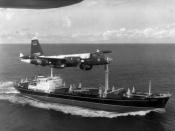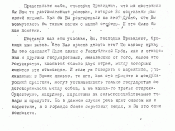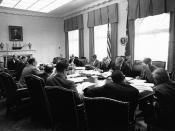JFK and the Crisis That Defeated the Cold War
The Cuban Missile Crisis was a major event in the Cold War when the Soviet Union set up offensive nuclear-armed missiles in Cuba facing the US. President John F. Kennedy's continuous patience and willingness to settle the conflict peacefully helped keep the Cold War from becoming a nuclear nightmare, and helped progress towards the end of a political dogfight. The Cold War was escalating in hostility and the Soviet's communist regime was moving westward closer to the US when Cuba fell into communism. This communist expansion westward brought with it the threat of the Soviets using nuclear warfare on the US. Kennedy had exceptional patience when negotiating with the Soviets, and it was his willingness to try an unorthodox strategy that was the main reason this threatening issue was settled. The Crisis in Cuba was the climax of the Cold War, and after it was settled by Kennedy, the Cold War began its decline.
Since the end of World War Two the Soviet Union has had a strong communist control over a large part of Eastern Europe. However in the years leading up to the Cuban Missile Crisis the communist regime was expanding westward towards the United States as Cuban leadership was turned over to Castro who later declared his allegiance to the Soviet Union. As a result the US was starting to become worried about the potential threat of a Soviet attack on the US. The Soviet Union had missiles set up in Cuba for some time before the Crisis occurred, however the Soviets claimed that they were only for defensive purposes. It was in October of 1962 that the Soviet Union aimed many different types of missiles, including nuclear, directly at the US emulating an offensive attack. These...


